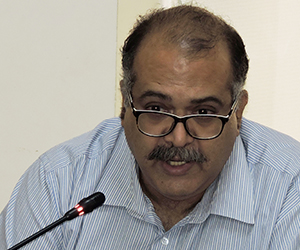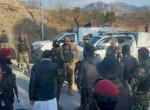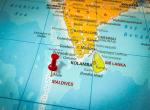Folklore, if not history, has it that the King of Delhi, Prithviraj Chauhan, worsted in battle the Afghan invader, Mohammed of Ghor, some 17 times. After each victory, Prithviraj acted graciously and with typical, if also entirely misplaced, Rajput chivalry and spared the adventurer from Ghor his life. Unfortunately, the ruler (and as increasingly seems to be the case post-independence, rulers) of Delhi never understood the driving force that prompted, nay compelled, the attacker from the North-West to keep trying his luck. Nor for that matter did the latter appreciate, let alone acknowledge, the gesture that was shown to him. That Mohammed of Ghor had no use for such senseless displays of chivalry became clear after he defeated Prithviraj. Not only did he carry Prithviraj into captivity as a trophy of war but also subjected him to the worst sort of torture. What followed was a sordid tale of ceaseless invasions and conquests for the next millennium.
Today, the rulers of Delhi are once again faced with a close to Prithviraj Chauhan like moment. The question is whether the historical blunders of the last millennium will once again be repeated, as it wasnot too long back in Shimla in 1972. Under the mistaken pretext that the time is ripe to reach out to the legatees of Ghor (after all doesn’t Pakistan still swear by the Afghan invaders, so much so that it has named its missiles Ghori, Ghazni and Abdali), the Indian leadership is being inveigled to make far reaching concessions and grand gestures in the fond hope that this will help in normalising relations with Pakistan. Alternatively, will the Indian leadership press home the advantage afforded by fortuitous circumstances and events (almost all of them the result of a blowback of Pakistan’s monumental folly of using terrorists as an instrument of state policy) and drive a hard bargain that secures India’s economic and political interests, guarantees its security, settles its borders, enhances its strategic outreach, and rids it of the constant needling and irritation that Pakistan has caused for the last 65 years. In other words, will India fall for the nonsense of not forcing a Versailles on Pakistan?
If the track record of the Manmohan Singh government is anything to go by, India will probably go the Prithviraj Chauhan way, ignoring not just the lessons of history but also cavalierly disregarding the continuing hostile actions emanating from Pakistan which are aimed at undermining India’s security and its economy. Quite aside the irony that even as the Pakistani foreign minister Hina Rabbani Khar underscored the need to ‘let bygones be bygones’ and ‘forge ahead without being held hostages to the past’ (alluding to the 26/11 terror attacks in Mumbai four years ago) she couldn’t resist mentioning the ‘K’ word (a 65 year old issue), the fact remains that Pakistan’s State and non-State actors have continued with their inimical actions against India. From pushing in narcotics (which is destroying an entire generation in Indian Punjab) to infiltrating terrorists and jihadists, from smuggling fake Indian currency notes (FICN) to recruiting young Indians to carry out Pakistan's murderous agenda, from instigating and inciting communal violence through its proxies to sponsoring anti-India and anti-Hindu propaganda, from providing sanctuary and support to anti-India groups to attacking Indian targets and development projects in Afghanistan, from trying to sabotage India’s diplomatic initiatives at the UN to using India’s neighbours like Nepal, Bangladesh and Sri Lanka to forge a front against India, Pakistan hostility towards India is unrelenting.
And yet, the Indian leadership’s unfathomable quest to embrace Pakistan, knows no limits. Admittedly, over the last few months, the Pakistanis have gone out of the way in talking sweetly to India. Statements of top Pakistani leaders – President Asif Zardari, Prime Ministers Yusuf Raza Gilani and Raja Pervez Ashraf, foreign minister Hina Rabbani Khar, leaders of parties which are partners in the ruling coalition as well as senior opposition politicians – have all been expressing their desire to improve relations with India. There has even been a softening in the line taken by the Pakistan army, as was evident in the statement of the army chief Gen. Ashfaq Pervez Kayani during a visit to the Siachen sector. But notwithstanding all the nice words being mouthed, there is little on the ground to show that Pakistan has made a strategic shift.
When judged against the metrics that will actually demonstrate a paradigm shift in Pakistan's attitude and approach towards India – namely, handing over the most wanted terrorists who have been given refuge in Pakistan, ending the export of narcotics and FICN, providing India transit rights to Afghanistan and beyond, ensuring the end of ceasefire violations along the LoC, supporting India’s entry into the UN Security Council, dismantling the infrastructure of jihadist terrorism, reforming the school curricula by indoctrinates young children against India and Hindus, ceasing hostile propaganda and baseless allegations against India, and last but not the least, ending their irredentist claims on the Indian state of Jammu and Kashmir and stopping the recruitment and incitement of Indian Muslims against their country – there is practically nothing that would indicate that indeed Pakistan has changed course on relations with India.
The only positive development has been trade front with Pakistan moving from the restricted positive list of tradable items to a negative list (comprising some 1200 products) and holding out the assurance of granting India MFN status by the end of the year. But even this move needs to be qualified. First and foremost, trade is not a concession, especially not if the side relaxing trade stands to gain much more. The most optimistic projections of Indo-Pak trade estimate that bilateral trade will touch $ 10 billion in the next five years or so. By this time India’s total foreign trade will be around $ 700-800 billion. In other words, trade with Pakistan will constitute a miniscule portion of India’s foreign trade, just around 1.5%. But in Pakistan’s case, trade with India will be over 10% of its total foreign trade. Secondly, and more importantly, by projecting trade as a huge concession, Pakistan is pushing India to make ‘concessions’ on issues like Sir Creek and Siachen as a quid pro quo. In fact, there seems to be a certain desperation on part of Pakistan to get India to abandon Siachen. Since there has been little give so far on these two issue from India, despite turn-the-other-cheek liberals pressing the government to give in, Pakistan has stalled all further progress on the trade front.
Clearly, the thinking in Pakistan was that it would be able to get the best of both worlds by liberalising trade with India – it would benefit from the trade and at the same time beguile India into surrendering territory. To an extent, the Pakistanis seemed to have been vindicated in this belief of theirs by the unnecessary euphoria that the opening up of trade generated among not only the Indian businessmen but also among a host of political leaders cutting across the political divide. Partly to keep Pakistan engaged and partly to oil the wheels of this trade, India has tried to generate goodwill by relaxing the visa regime making it easier for certain categories of people to travel across the Radcliffe line. Indian officials insist that proper safeguards have been built into the new visa regime, and that the introduction of business visas, tourist visas, spouse visas and visa on arrival for senior citizens and children will not compromise the security interests of the country. But given the state of affairs and the sort of pulls and pressures that are brought to bear on officials to grant visas to Pakistanis, the new visa regime doesn't inspire too much confidence. Quite simply, there is really no failsafe method of ensuring that undesirable elements dont come into India using the relaxed visa regime. For instance, it is an open secret that many Pakistani businessmen who are keen on trade with India are also big financiers of terror groups like the Jamaatud Dawa, Sipah-e-Sahaba, Jaish-e-Mohammed etc. Keeping an eye on all these characters and stopping their entry into India is easier said than done.
Much of the bonhomie on display by both India and Pakistan is aimed at paving the way for the visit of Prime Minister Manmohan Singh to Pakistan. His visit to his ancestral village Gah is being touted as a landmark in Indo-Pak relations and the spin doctors of the government are busy churning out a prodigal-son-returning-home sort of narrative. But given that no Napoleonic feat will be achieved during this visit, why anyone should be going so gaga over his visit to Gah is rather mind-boggling. If anything, it would seem that Manmohan Singh will go to the land of his birth bearing gifts that the land that gave him refuge after he was unceremoniously thrown out from what is now Pakistan (and as many Hindus today are being hounded and forced out) can ill afford to give. For their part, the Pakistanis are quite clear that India will have to compromise on issues like Kashmir, Siachen, Sir Creek and water for any forward movement in bilateral relations. None other than arguably the most well-informed Pakistani journalist, Najam Sethi, insisted on this in his TV talk show a day after the Indian foreign minister returned from his visit to Pakistan. And Sethi is supposed to be the liberal, modern, moderate voice in Pakistan!
Quite clearly, until Pakistan can get over its compulsive hostility of India, normalisation of relations between the two countries will remain a pipedream. But breaking with the past will require a complete overhaul of Pakistan, something that appears practically impossible. While India must keep lines of communication open, there is absolutely no reason for it to push for a negotiated settlement and that too on Pakistan’s terms, even less so at a time when Pakistan is on the ropes. Let India follow the Chinese maxim that if you sit long enough on the banks of a river you will watch the body of your adversary float by. At the same time, if Pakistan forsakes the use of Islamist terror and other forms of sabotage and subversion as an instrument of state policy against India and accepts the reality and existence of India, then it will find India a more than willing partner, one that will go the extra step like it has done in the case of Bangladesh.
Published Date: 14th September 2012










Post new comment